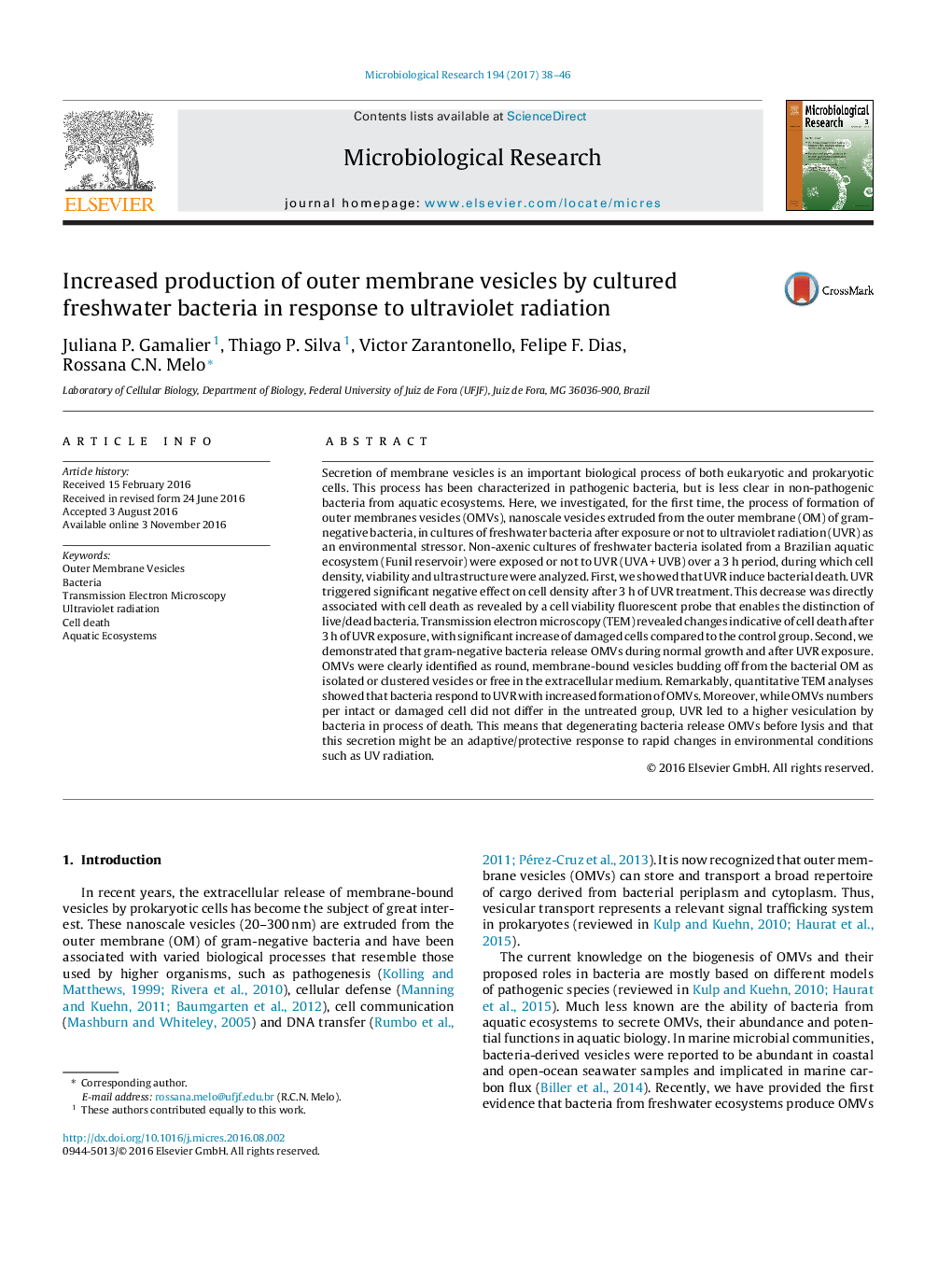| کد مقاله | کد نشریه | سال انتشار | مقاله انگلیسی | نسخه تمام متن |
|---|---|---|---|---|
| 5522489 | 1545980 | 2017 | 9 صفحه PDF | دانلود رایگان |
Secretion of membrane vesicles is an important biological process of both eukaryotic and prokaryotic cells. This process has been characterized in pathogenic bacteria, but is less clear in non-pathogenic bacteria from aquatic ecosystems. Here, we investigated, for the first time, the process of formation of outer membranes vesicles (OMVs), nanoscale vesicles extruded from the outer membrane (OM) of gram-negative bacteria, in cultures of freshwater bacteria after exposure or not to ultraviolet radiation (UVR) as an environmental stressor. Non-axenic cultures of freshwater bacteria isolated from a Brazilian aquatic ecosystem (Funil reservoir) were exposed or not to UVR (UVAÂ +Â UVB) over a 3Â h period, during which cell density, viability and ultrastructure were analyzed. First, we showed that UVR induce bacterial death. UVR triggered significant negative effect on cell density after 3Â h of UVR treatment. This decrease was directly associated with cell death as revealed by a cell viability fluorescent probe that enables the distinction of live/dead bacteria. Transmission electron microscopy (TEM) revealed changes indicative of cell death after 3Â h of UVR exposure, with significant increase of damaged cells compared to the control group. Second, we demonstrated that gram-negative bacteria release OMVs during normal growth and after UVR exposure. OMVs were clearly identified as round, membrane-bound vesicles budding off from the bacterial OM as isolated or clustered vesicles or free in the extracellular medium. Remarkably, quantitative TEM analyses showed that bacteria respond to UVR with increased formation of OMVs. Moreover, while OMVs numbers per intact or damaged cell did not differ in the untreated group, UVR led to a higher vesiculation by bacteria in process of death. This means that degenerating bacteria release OMVs before lysis and that this secretion might be an adaptive/protective response to rapid changes in environmental conditions such as UV radiation.
Journal: Microbiological Research - Volume 194, January 2017, Pages 38-46
